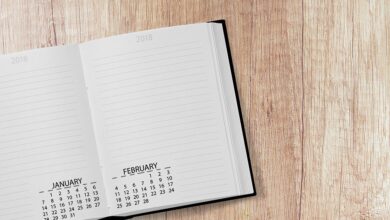
Diary Writing and Memory Enhancement: 7 Ways It Can Preserve Your Past
Diary writing has been a popular pastime for countless individuals over the years, allowing them to document their thoughts, experiences, and emotions. While many people may view it as simply a way to record their daily activities, diary writing actually has a number of benefits for memory enhancement and preservation of the past.
In recent years, research has shown that engaging in regular diary writing can have a significant impact on memory retention and enhancement. In this article, we will explore the ways in which diary writing can help to preserve your past and improve your memory.
1. Reflection and Recollection
One of the main benefits of diary writing is the opportunity to reflect on and recollect past events and experiences. By writing about your day, you are able to revisit and relive the moments that made an impact on you. This act of reflection can help to solidify memories and make them easier to recall in the future.
2. Emotional Processing
Through diary writing, individuals can process and express their emotions in a safe and private space. Emotions play a crucial role in memory formation, and by writing about your feelings, you are able to anchor those emotional experiences in your memory. This can lead to stronger and more vivid recollections of past events.
3. Mindfulness and Awareness
Diary writing can also help to cultivate mindfulness and awareness of one’s surroundings. By paying attention to the details of your day and recording them in your diary, you can develop a greater awareness of the present moment. This heightened awareness can lead to a more vivid and detailed memory of past events.
4. Cognitive Stimulation
Engaging in regular diary writing can provide a valuable form of cognitive stimulation. The act of organizing and articulating your thoughts on paper exercises your brain, which can help to improve memory and cognitive function. This mental exercise can also help to stave off cognitive decline as you age.
5. Self-Identity and Narrative
Diary writing allows individuals to construct and preserve their self-identity and personal narrative. By chronicling your thoughts, experiences, and accomplishments, you are creating a record of your life story. This can help to solidify your sense of self and provide a coherent narrative of your past for future reflection.
6. Personal Growth and Learning
Diary writing can also be a valuable tool for personal growth and learning. By documenting your experiences and reflecting on them, you can gain insight into your own patterns of behavior and decision-making. This self-awareness can lead to personal growth and development, as well as a deeper understanding of your past actions and choices.
7. Historical Legacy
Finally, diary writing can serve as a way to preserve your personal and family history for future generations. Your diary can provide a window into the past, allowing your descendants to gain insight into your life and experiences. By recording your thoughts and experiences, you are creating a valuable historical record that will be cherished by future generations.
In conclusion, diary writing has a number of benefits for memory enhancement and preservation of the past. By engaging in regular diary writing, individuals can improve their memory retention, gain greater self-awareness, and create a valuable historical legacy for future generations. Whether you are looking to improve your memory, process your emotions, or preserve your personal history, diary writing can be a valuable tool for achieving these goals. So why not pick up a pen and start writing in your diary today? Your future self will thank you for it.




